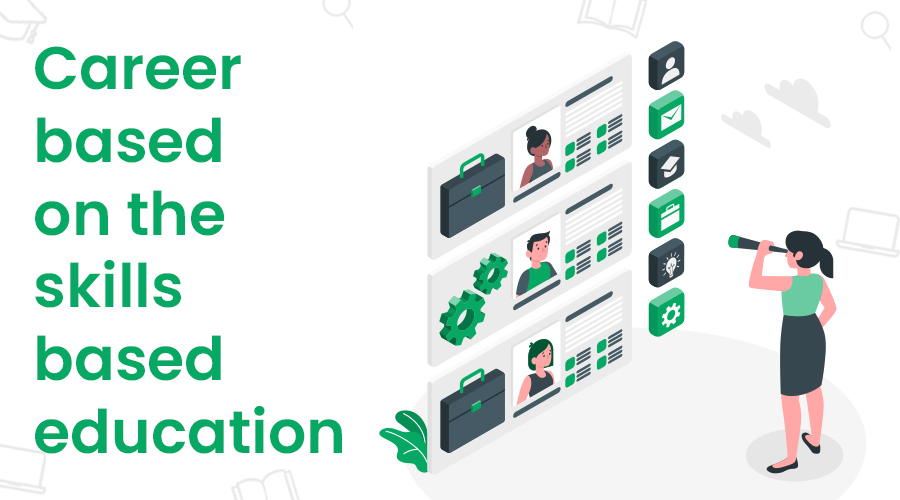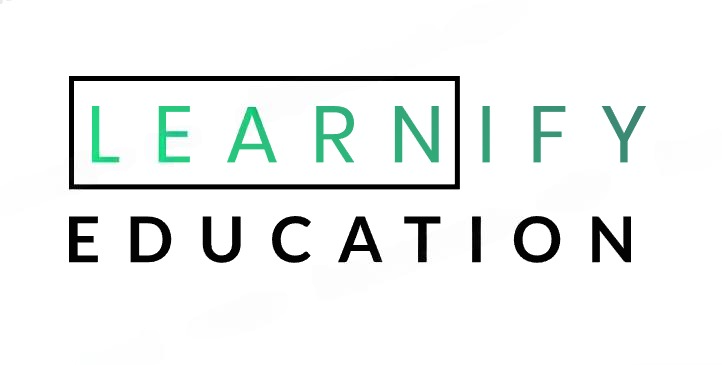











Compare India's leading
universities on a single platform
within two minutes.
- Career Based On The Skills Based Education
- 30X comparison factors
- Free expert consultation
- Quick Loan facility
- Post Admission Support
- Learnify Exclusive Community
- Job + Internship Portal
Career Based On The Skills Based Education & its importance
- No-Cost EMI From ₹5100/-
- Subsidy Available upto ₹20,000/-

Introduction: Career Based On The Skills Based Education
Skill-based education has become very important in today’s fast-changing job culture, where traditional education is taught everywhere. Traditional education means theory-based education in which the student is prepared. Theoretically, counter-knowledge is not given, which is more important than the necessary theoretical education. Nowadays, skill-based education is more important than theoretical education. Nowadays, the company has more demand for skill-based students. For those with good per capita knowledge, let us explain better why skill-based education is necessary.
Importance of Practical Skills Skills based education
Now, I will give a small overview of the importance of skills-based education that we are going to learn in detail, so let’s get started. As the demand in today’s job market is rapidly changing and competition among individuals is rising, employers now prefer students with practical knowledge. I am not saying you should take only theoretical education; balancing both is very important in this competitive market. Practical technical aspects, communication, critical thinking, and problem-solving skills have turned out to be of current importance in each type of industry. You’ve just got to adapt to it and make yourself one able to solve problems and think critically.
traditional education vs modern education(Short Overview)
There is a lot of difference between skill-based education (modern education) and traditional education; traditional education is mostly theory and book knowledge, even this type of study is done in traditional education and vice versa, skill-based education is more in theory knowledge, work and practical knowledge, you are given real-life field tasks in it, which you will not have any special problem in your future.
What is Skills-Based Education? Career Based On The Skills Based Education
Skill-based education is one in which students are given more practical knowledge than theory and textbook knowledge; they are prepared for real-life tasks and to deal with real problems, improving their skills. Skill-based education benefits students; they also learn about their interests, are completely job-ready and have the confidence to do the job.
Examples of Popular Skills-Based Programs:
- Coding Bootcamps
- Digital Marketing Courses
- Data Science Programs
- Project Management Certifications
- UX/UI Design Courses
- Cybersecurity Certifications
- Financial Analyst Certifications
- Graphic Design Courses
- Cloud Computing Certifications
- Soft Skills Training
Why Skills-Based Education is Important for Career Development?: importance of skill based education
In today’s modern job market, skill-based education’s importance has greatly increased. Companies need such skilled professionals with real-life experience related to their jobs because it saves the company time and money and benefits them. There is also a lot of demand, which is increasing according to the demand for skilled-based education companies.
Skills Required for a Successful Career
To have a successful career, a very good skill is very important. There is only one skill that is your priority; it will be your core skill. You are working hard to get this skill, but there are some basic skills to get the skill that you want to get. Only then will you be able to achieve a lot, and if you start working on the following skills, the journey ahead will become much easier for you.
- Communication skills
- Problem solving skills
- leadership
- teamwork
- If you have this background, having technical skills is very important.
Benefits of Skills-Based Education
Skilled based education is as important as its benefits. The first benefit is that I have been telling you since the beginning that the company is looking for such professionals who have practical and real life experience. Now we will talk about the 2 most major benefits.
- In view of today’s fast and trendy market, one thing is becoming cloudy. In such new tools, new things have also come in the market to learn, it is very important to have experience, practical knowledge and it will be learned quickly by the one who has the most experience in the field, you will be able to adapt to one thing at a time.
- You will have more confidence and you will think more and handle real life problems easily, your creativity and critical thinking will increase a lot. Skill based education is such an education which a person always remembers and never forgets.
Skills-Based Education vs. Traditional Education
| Aspect | Skills-Based Education (Modern Education) | Traditional Education |
|---|---|---|
| Learning Approach | Focuses on practical, hands-on learning | Focuses on theoretical, textbook learning |
| Knowledge Type | Real-life tasks and practical knowledge | Bookish knowledge with limited practical application |
| Industry Relevance | Directly aligned with job market needs | Less aligned with current job market demands |
| Problem-Solving | Emphasizes critical thinking and real-world problem-solving | Limited focus on problem-solving skills |
| Flexibility | Adaptable to new tools and technologies | Rigid, slow to incorporate changes |
| Confidence Building | Enhances creativity and confidence in real-life scenarios | Often lacks opportunities for real-life application |
| Job Readiness | Prepares students for immediate job roles | Often requires additional job training |
| Learning Focus | Skills and competencies for specific careers | Broad, generalized knowledge |
| Examples of Programs | Coding Bootcamps, Digital Marketing, UX/UI Design | Traditional degree programs like BA, BSc, MA |
| Outcome | Directly prepares students for jobs, saving company training time | May not directly translate to job readiness |
list of things that can help increase skill-based learning
- Online Courses and Certifications
- Workshops and Seminars
- Internships and Apprenticeships
- Practical Projects
- Mentorship Programs
- Networking
- Collaborative Learning
- Skill Development Apps
- Reading Books and Blogs
- Practice and Repetition
- Attending Conferences and Networking Events
- Feedback and Self-Reflection
- Volunteering
- Soft Skills Development
- Experimentation and Innovation
Conclusion
Besides, skill-based education is a new trend in the career preparation, as opposed to the traditional knowledge-based model. In today’s increasingly stringent job market, there’s a lot of emphasis placed on practices which can be taken from class and inserted directly into business. It increases confidence, analysis and problem solving skills which applies in any sector they work in. Hence, taking courses, internships and handling projects enables us to prepare for future challenges better by practicing on skills. Combining academic education with skill enhancement guarantees that one is not only informed, but equipped to excel professionally as well.


